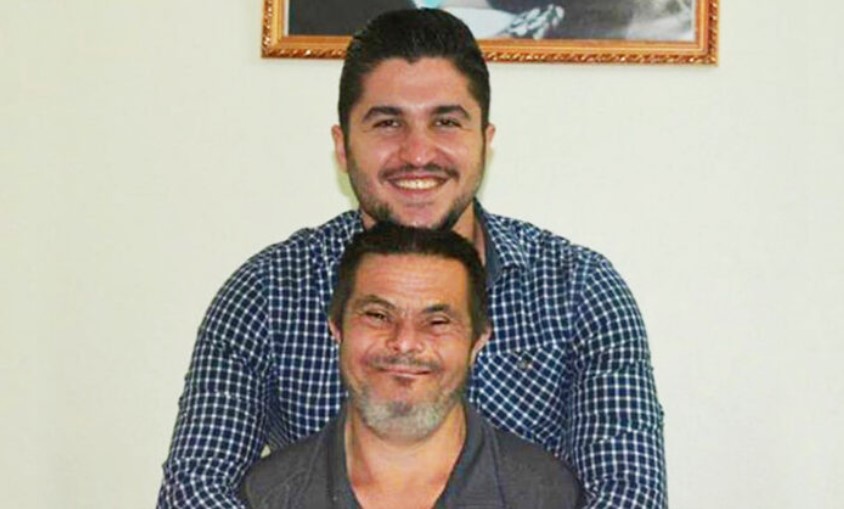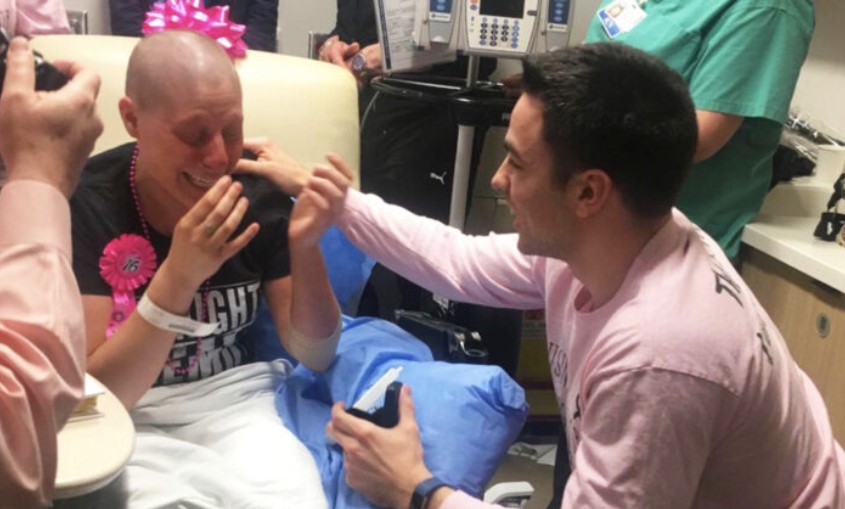The feeling of love at first sight is something that many people have experienced, but as they get to know the person, they may realize it’s more infatuation than true love. Throughout our lives, we’ve probably been in and out of love multiple times, and the person we thought was “the one” may not have been.
Coping with heartbreak can be a challenging and emotional process, regardless of how many times we’ve experienced it. Even if the relationship was toxic, parting ways with a lover is a significant loss, and people need time to grieve and heal. In this article, we’ll explore the emotions associated with heartbreak and provide tips on how to move forward after a relationship ends.
Ten Signs to Identify a Heartbroken Woman
It’s common for individuals to keep their destroyed relationships private and try to carry on with their day-to-day routine while putting on a brave face. However, it can be challenging to cope with the turmoil of a broken relationship alone.
However, dealing with some of the issues that arise during this time is essential to prevent them from negatively impacting one’s physical, mental, and spiritual well-being. We’ll examine ten signs of a heartbroken woman to look out for, and offer advice on how to support ourselves or loved ones during this challenging period.
Withdrawal from social activities
One common sign of heartbreak is withdrawal from social activities. People who are dealing with a broken relationship can avoid attending events or canceling plans, even if they were looking forward to them. This behavior is often due to the overwhelming feeling of pretending that everything is okay when it’s not.
However, withdrawing from social activities can lead to isolation and make the healing process more challenging. It’s essential for individuals experiencing heartbreak to push themselves to attend social events gradually. Even if it’s only for a short time, it can help them feel less alone and provide a much-needed distraction from their thoughts and emotions.
Decreased energy levels and motivation
Decreased energy levels and motivation are common signs of heartbreak. When someone is experiencing heartbreak, they may feel physically and emotionally drained, leading to a lack of motivation to engage in daily activities. This can result in neglect of responsibilities such as work or household chores, which can further exacerbate feelings of sadness and hopelessness.
Understanding this sign is crucial in supporting someone going through heartbreak, as it may require gentle encouragement and understanding to help them regain their energy and motivation.
Changes in eating or sleeping patterns
Changes in eating or sleeping patterns are a sign that you may be heartbroken. When you go through a breakup, it’s common to experience disruptions in your regular routine. You may find yourself struggling to fall asleep or waking up throughout the night due to racing thoughts and emotional distress.
Alternatively, you may oversleep or have trouble getting out of bed in the morning. Changes in appetite are also common, with some people losing their appetite entirely while others may turn to food for comfort. It’s important to recognize these changes and try to maintain a healthy sleep and eating schedule, as a disrupted routine can lead to further emotional distress.
Increased irritability and mood swings
When you’re dealing with a breakup, it’s normal to experience a range of emotions, including sadness, anger, and frustration. However, if you find yourself becoming increasingly irritable and moody, it may be a sign that you need to take some time to focus on your emotional well-being.
It’s important to understand that these mood swings are a natural part of the healing process, but it’s also crucial to seek support from loved ones and consider professional help if the mood swings persist. Taking care of your mental health is essential and can help you move forward from heartbreak.
Difficulty focusing and lack of concentration
When dealing with heartbreak, one may experience difficulty focusing or a lack of concentration. It’s common to feel distracted and have a wandering mind, making it challenging to complete tasks that were once easy to accomplish. The emotional turmoil associated with heartbreak can make it hard to focus on anything else.
However, it’s crucial to understand that this is a normal part of the healing process, and taking a break from work or other activities to prioritize your emotional well-being is okay. Engaging in mindfulness techniques like yoga or meditation, taking breaks when necessary, and seeking support from loved ones can help improve concentration and focus during this challenging time. Remember to be patient with yourself and give yourself the time needed to heal.
Increased use of drugs or alcohol
It’s common to turn to substances as a way to cope with emotional pain and distress. However, using drugs or alcohol as a coping mechanism can lead to addiction and further emotional turmoil. It’s important to recognize the signs of substance abuse and seek professional help if needed. Remember, there are healthier ways to cope with heartbreak, such as seeking support from loved ones, practicing self-care, and engaging in activities that bring you joy.
Seeking constant distraction through entertainment or work
It’s normal to want to distract yourself from painful emotions and thoughts, and one way people do this is by constantly keeping themselves busy. However, constantly seeking distractions can prevent you from fully processing and healing from the heartbreak.
It’s important to take time to address your emotions and find healthy ways to cope, such as talking to a therapist, journaling, or engaging in self-care activities. While distractions can provide temporary relief, ultimately, addressing and working through your emotions is necessary for healing.
Frequent crying spells or emotional outbursts
It’s also important to avoid unhealthy coping mechanisms, such as excessive drinking or drug use, which can worsen your emotional state and hinder the healing process. Instead, focus on healthy ways to cope with your emotions and take care of yourself during this difficult time.
Don’t be afraid to ask for help or support from those around you, as they can provide comfort and guidance as you navigate through heartbreak. Remember that healing takes time, but with patience, self-care, and support, you can emerge stronger and more resilient than before.
Avoiding situations that trigger memories of the relationship
This is a common coping mechanism when dealing with heartbreak. It’s natural to want to avoid places or activities that remind you of your ex-partner, as it can cause painful emotions and memories to resurface. However, avoiding triggers can also prevent you from processing these emotions and moving forward. Instead of completely avoiding triggers, try gradually exposing yourself to them in a safe and controlled environment.
You can also use coping strategies such as deep breathing or mindfulness to manage any difficult emotions that come up when facing triggers. Remember, healing from heartbreak takes time, and it’s essential to be patient and kind to yourself during the process.
Difficulty moving on and inability to envision a future without their ex
If you’re having difficulty moving on after a breakup and find it hard to envision a future without your ex, know that this is a common experience. It’s okay to take the time you need to process your emotions and grieve the loss of the relationship. However, it’s crucial to avoid getting stuck in a cycle of rumination and longing for what once was.
Instead, try to focus on self-care activities, spend time with loved ones, and set new personal goals for the future. Seeking support from a therapist or counselor can also be beneficial in helping you navigate the healing process and build a brighter future for yourself. Remember, healing takes time, but with patience and perseverance, you will overcome this difficult time and emerge with newfound strength and resilience.
How To Deal With a Break-Up
With time and effort, it’s possible to let go of the past and envision a new future for yourself. Remember, everyone heals at their own pace, and it’s okay to take the time you need to heal and move forward from heartbreak.
Dealing with heartbreak can be a difficult and emotional process for anyone, including women. Here are some tips that may help women cope with heartbreak:
Allow yourself to feel the emotions: Acknowledging and accepting the range of emotions that come with heartbreak is crucial for healing. Allowing yourself to feel and experience these emotions as they come can help you process them and move forward quicker
Seek support from loved ones: Talking to friends and family members can provide comfort and support during this difficult time. It’s essential to surround yourself with people who care about you and want to see you heal.
Take care of your physical and emotional well-being: Engaging in self-care activities, such as exercise, meditation, or journaling, can help improve your mental health and reduce stress levels. Eating healthy foods, getting enough sleep, and avoiding alcohol or drugs can also promote overall wellness.
Consider therapy or counseling: A professional counselor or therapist can help you work through your emotions, provide guidance and support, and offer coping strategies to help you move forward.
While these tips may not make the heartbreak disappear overnight, they can help women deal with the pain and begin to heal over time. Remember, everyone heals at their own pace, and it’s essential to be patient and kind to yourself during the process.








